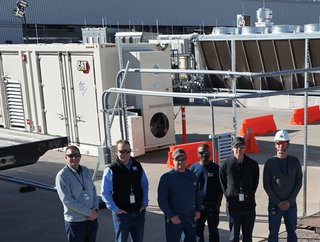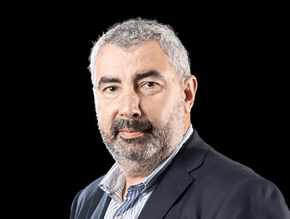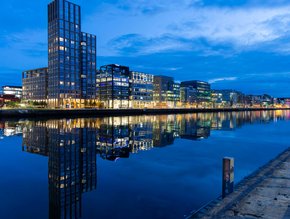Microsoft & Caterpillar Test Hydrogen Fuel Cell Solutions

Hydrogen fuel cells are currently seen as a possible solution to continue decarbonising data centres worldwide.
In considering this, Caterpillar Inc. recently led a project to successfully test hydrogen fuel cell technology for backup power at a Microsoft data centre. Collaborating with the tech giant and Ballard Power Systems, the company was able to provide valuable insight into the capabilities of fuel cell systems to power multi-megawatt data centres.
This expands upon Caterpillar’s existing partnership with Microsoft and demonstrates significant progress towards providing sustainable backup power via hydrogen technology for the future of data centres.
Addressing critical power needs with hydrogen
Although not yet commercial on a large scale, hydrogen power has been posited as a sustainable alternative to diesel fuels. Fuel cell technology in particular only started to gain more traction in the data centre industry in 2023, with businesses debating if hydrogen power could actually help power a sustainable future.
Given the continued increase in global demand for digital infrastructure, enterprises are looking for new ways to ensure clean and sustainable power. In particular, data centre companies are now starting to consider if their facilities can solely be powered by renewables like hydrogen.
As a result, the collaboration between Caterpillar, Microsoft and Ballard Power Systems is able to demonstrate the viability of using large-format hydrogen fuel cells to supply reliable and sustainable backup power. The three companies have been collaborating for several years, having been working to demonstrate the potential of hydrogen fuel cells for data centres.
According to Caterpillar, the demonstration was conducted in a challenging environment and validated the hydrogen fuel cell power system’s performance at 6,086 ft (1,855 m) above sea level and in below-freezing conditions. The project simulated a 48-hour backup power event at Microsoft's data centre in Cheyenne, Wyoming, where a hydrogen fuel cell was integrated into a data centre electrical plant to support its critical load.
Caterpillar led the project and provided the overall system integration, power electronics and microgrid controls that form the central structure of the hydrogen power solution.
“This project’s success provides an opportunity for hyperscale providers to drive innovations in the sustainability of power generation technologies,” said Sean James, Senior Director of Data Centre Research at Microsoft. “The research and findings of the hydrogen fuel cell demonstration will help us towards our goal of becoming carbon negative by 2030.”
Committing to carbon neutrality
With a demonstrated leadership in hydrogen-fuelled power solutions, Caterpillar already works to help customers meet uptime commitments at thousands of data centres worldwide. Its power solutions include specification, installation, commissioning and service.
The company’s hydrogen-fuel power technologies include a range of solutions capable of operating natural gas blended with up to 25% hydrogen. Its data centre power solutions also aim to meet customer needs for transient response, quick start capability, block load acceptance, emissions reduction and noise suppression.
“This successful collaboration with Microsoft and Ballard demonstrates the potential of hydrogen fuel cells to help data centres address their critical power needs while reducing their emissions,” says Jaime Mineart, Senior Vice President of Caterpillar Electric Power.
Other companies have already started rolling out hydrogen fuel cell solutions at the start of 2024. In particular, Honda and Mitsubishi are strengthening their partnership by planning to test a small data centre in Japan that runs on hydrogen.
By using FCEV fuel cells (an alternative to battery-powered cars) and hydrogen power, they aim to ensure further decarbonisation of data centres, in addition to expanding global business opportunities.
******
Make sure you check out the latest edition of Data Centre Magazine and also sign up to our global conference series - Tech & AI LIVE 2024
******
Data Centre Magazine is a BizClik brand






